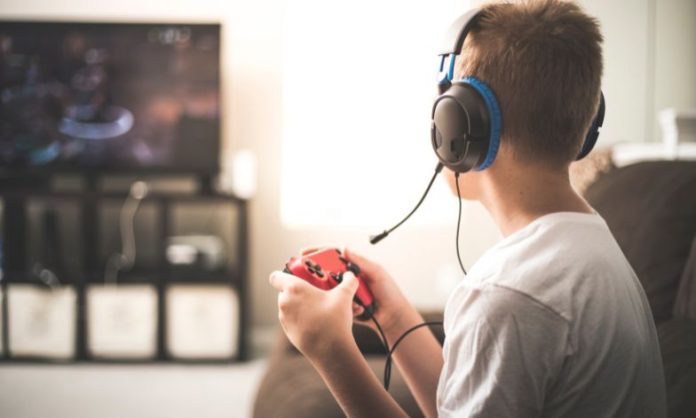In the digital era, video games have become an integral part of audiovisual culture. Their sophisticated graphics, interactive narratives, and compelling storylines offer more than just entertainment—they have the potential to impact mental health positively. On today’s World Mental Health Day, it’s crucial to recognize such unconventional mediums that might be helping individuals cope, communicate, and connect.
More than just entertainment
Launched to coincide with Mental Health Day, the global “Power of Play” report, jointly commissioned by Video Games Europe, with video game trade associations in Australia, Canada, South Korea and the USA, provides new insights into video gaming’s profound effects on players, challenging outdated assumptions about video games and the 3 billion people worldwide who engage with them. While globally, players unanimously agreed that “having fun” is the paramount reason for indulging in games, a substantial number also recognized video games as instrumental in navigating personal challenges and relieving stress.
 The study, which surveyed nearly 13,000 players across 12 countries, found that 71% felt video games serve as a stress reliever, 55% as a means to combat isolation, and 64% turn to games to help them face everyday challenges. Among the European countries surveyed, which included France Germany, Italy, Poland, Spain and the UK, those numbers came out to 68%, 53% and 67% respectively.
The study, which surveyed nearly 13,000 players across 12 countries, found that 71% felt video games serve as a stress reliever, 55% as a means to combat isolation, and 64% turn to games to help them face everyday challenges. Among the European countries surveyed, which included France Germany, Italy, Poland, Spain and the UK, those numbers came out to 68%, 53% and 67% respectively.
Furthermore, European gamers credited their gaming experiences with boosting creativity (73%), refining problem-solving skills (66%), and enhancing cognitive functions (68%). As the conversation around mental health amplifies globally, these results underscore the potential for video games to be harnessed as positive contributors to mental well-being.
Potential health benefits
Contrary to the widespread belief that video games harm well-being, recent studies and initiatives highlight their potential health benefits. WHO/Europe initiated discussions on how gaming can enhance mental health, equip healthcare professionals with innovative tools, and assist individuals in overcoming physical challenges.
With close to 3 billion gamers globally, and in alignment with the Triple Billion targets aiming for a healthier billion people by 2023, gaming emerges as a significant frontier for health promotion.
Yet, as with any medium, balance is vital. The World Health Organization, in its 11th Revision of the International Classification of Diseases (ICD-11), warns of “gaming disorder“—a condition where gaming takes over, eclipsing other life activities. While these adverse effects are pertinent, it’s reassuring to note they touch only a minute segment of the vast gaming population.
COVID-19 changed perceptions
Amidst the challenges of the COVID-19 pandemic, many sought refuge in video games, not only as an escape but also as a platform for social interactions, to connect with friends and for relaxation. It marked a turning point in how video games are perceived and the impact they have.
Recognizing the role they play, the World Health Organization engaged with the game industry throughout the pandemic. In late 2020, 18 game industry giants collaborated to amplify the WHO’s COVID-19 prevention messaging through the #PlayApartTogether initiative. The campaign integrated WHO’s guidelines into popular games, offering exclusive content and activities to promote health measures like physical distancing and hand hygiene.
Later on, to help inspire millions of online gamers to lead an active lifestyle and look after their mental health, WHO encouraged online gaming companies to invite players to take WHO’s #HealthyAtHome challenge. To mark World Mental Health Day 2021, the characters from Playrix’s Homescapes and Gardenscapes reminded players about the importance of caring for their mental health by reducing stress, supporting loved ones, and fostering and maintaining social contacts.

Other WHO collaborations included working on the hit mobile game Plague Inc’s expansion ‘The Cure’, and a partnership with Psyon Games on the launch of a new tower defence game called the Antidote COVID-19 to turn complex, scientific information into a fun learning experience.
Over the past decade, the United Nations family has been actively engaged with the video games industry. From unique educational games teaching players about the plight of refugees, how to avert disasters or how to green the planet, to flagship projects such as the Playing for the Planet initiative, the video games industry has the potential to inform and engage vast audiences on global matters, and contribute to the global development agenda. The pandemic underscored this potential; as global habits shifted and the importance of mental health has come to the forefront, video games have emerged not just as a communication medium, but as a potential tool for enhancing mental and physical well-being when utilized effectively.
Observed annually on 10 October, World Mental Health Day serves as a timely reminder of the importance of mental well-being and the various tools available to support it, including video games. As the gaming industry continues its upward trajectory, it’s essential to harness its potential responsibly for societal good while being vigilant of its pitfalls.
Additional links:
United Nations and Video Games
Building Blocks of a Better City: Minecraft’s Role in Urban Development




